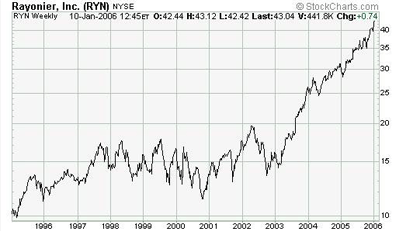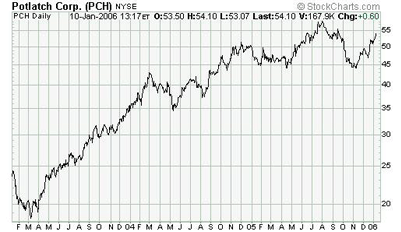| Home | About Us | Resources | Archive | Free Reports | Market Window |
What The Hell Am I Doing In Nashville?By
Wednesday, January 11, 2006
The 2004 Crossroads auction at Christie's in New York City was a landmark event. A new record was set in the collectibles business... someone paid $959,000 for an electric guitar. The guitar belonged to Eric Clapton. It was a 1957 Fender Stratocaster also known as Blackie. Blackie wasn’t the only guitar causing a stir. A 1964 Gibson went for $847,500. A 1939 Martin acoustic went for $791,500. Another Stratocaster went for $623,000. Clapton auctioned off 88 guitars in total. The collection raised $7.4 million. Clapton donated the proceeds to charity. Last week, I spent a couple of days in the company of the man who sold Clapton his first ever Stratocaster. His name is George Gruhn, and he’s recognized as the world’s foremost authority on vintage guitars. In fact, Clapton bought his first four Stratocasters from Gruhn. He paid Gruhn $400 for each guitar. Gruhn owns a guitar shop in Nashville. He’s been in business for 36 years and he’s sold guitars to many famous musicians... Neil Young, The Rolling Stones, and Bela Fleck to name three. Clapton has bought dozens of Gruhn’s guitars over the years. Although the Crossroads auction grossed millions of dollars, and Clapton didn’t receive a penny from the proceeds, it was still one of the smartest trades Clapton will ever make... if you analyze it as a pure business transaction. I’ll explain why in a moment. First let me tell you what I was doing in Nashville. I was there to buy a vintage guitar from George Gruhn. Tangible assets are assets you can touch. Coal is a tangible asset. So is a gold coin. So is brand new pair of 1980s Air Jordan sneakers. Your house is a tangible asset. A barrel of oil is a tangible asset. So is a musical instrument... The most recent bull market in tangible assets took place in the 1970s. Older readers may recall aggressive salesmen pushing investment-grade stamps over the telephone... or newspapers full of gold coin classified ads... or an explosion in the number of young commodity brokers. Then the bubble burst. Dealers went broke and most real asset prices struggled to keep up with inflation. Fast forward two decades and what do you know... by 2000, tangible assets like gold coins had landed in the investment dumpster. That’s all changed in the past five years. Tangible assets are rising again, and I expect the demand for these assets to increase over the next decade as the world’s central banks crank their printing presses and investors hedge against inflation. At the same time, prices are historically low and inventories are tight, so major price declines are unlikely. I don’t play the guitar, but - as of my trip to Nashville last week - I now own a Brazilian rosewood 1939 C.F. Martin. It's the same style and same year as the one Clapton sold in his Crossroads auction for $791,000. You might think Clapton was crazy to sell his prized guitar collection and give it all to charity. But in reality, Clapton’s decision to sell his collection and give the proceeds to charity was a brilliant business decision... Because the auction was for charity, bidders pulled out all the stops... and prices soared. Secondly, the auction house probably didn’t charge Clapton a seller’s fee. Thirdly, because Clapton sold his guitars to charity, he can use the proceeds as a giant deduction from his tax bill. If he hadn’t done it this way, he’d have had to pay capital gains on the guitars instead. Finally, Clapton gets great publicity for being generous and for his association with the most expensive guitar ever sold. My guitar may not set any records at the auction house, but as the bull market in tangible assets continues, it will be an investment that does far better than stocks. Consider adding a few “tangibles” to your collection. Good Investing, Tom Dyson Market NotesA NO-BRAINER INVESTMENT FOR THE NEXT TEN YEARS You can make an enormous amount of money in timber stocks… just consider the gains investors have made in timber REIT Rayonier (RYN) over the past ten years, up over 450% with dividends.
We think timber will continue to be an outstanding place for investors over the next decade. Timber is a “real asset” investment. Timber is uncorrelated to the stock market… it doesn’t care about terrorism … and trees grow 6%-8% a year without even thinking about it. Our colleague Dan Ferris has identified the stock market’s newest timber REIT, Potlatch Corp. (PCH), as an undervalued way to take advantage of the bull market in timber. After a long sideways move in 2005, Potlatch is heading higher:
|
Recent Articles
|



